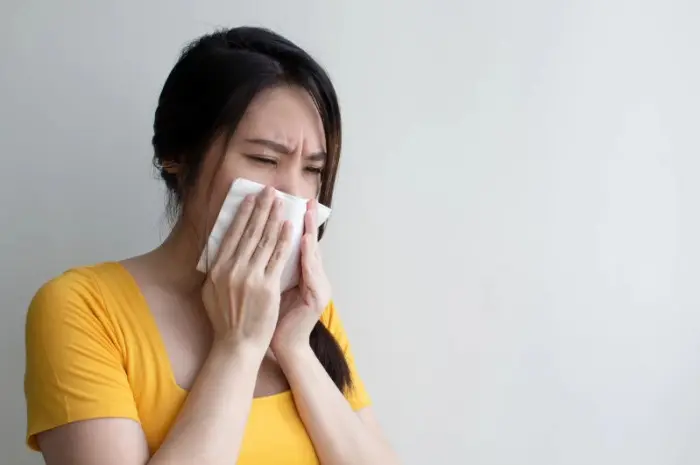As the seasons change, many individuals find themselves battling the uncomfortable symptoms of seasonal allergies, also known as hay fever or allergic rhinitis.
From sneezing and nasal congestion to itchy eyes and throat irritation, seasonal allergies can significantly impact one’s quality of life and productivity.
Fortunately, there are several effective treatment strategies available to help alleviate symptoms and improve overall comfort.
In this comprehensive guide, we’ll explore a variety of methods for treating seasonal allergies, empowering sufferers to find relief and enjoy the beauty of every season.
1. Identify Triggers
The first step in effectively treating seasonal allergies is to identify the specific triggers that cause your symptoms. Common allergens that can exacerbate seasonal allergies include pollen from trees, grasses, and weeds, as well as mold spores and airborne pollutants.
Keeping track of your symptoms and noting any patterns or triggers can help you pinpoint the allergens responsible for your discomfort, allowing you to take proactive measures to minimize exposure.
2. Allergy Medications
Over-the-counter and prescription allergy medications can provide fast and effective relief from seasonal allergy symptoms.
Antihistamines work by blocking the action of histamine, a chemical released by the immune system in response to allergen exposure, thereby reducing symptoms such as sneezing, itching, and nasal congestion.
Decongestants can help relieve nasal congestion by shrinking swollen nasal passages, while nasal corticosteroids can reduce inflammation and congestion in the nasal passages.
It’s essential to consult with a healthcare professional before starting any new medication to ensure it’s safe and appropriate for your individual needs.
3. Nasal Irrigation
Nasal irrigation, also known as nasal saline irrigation or nasal lavage, involves rinsing the nasal passages with a saline solution to remove allergens, mucus, and other irritants.
This simple yet effective technique can help alleviate nasal congestion, reduce sinus pressure, and soothe irritated nasal tissues.
Nasal irrigation can be performed using a variety of devices, such as neti pots, squeeze bottles, or nasal irrigation kits available at pharmacies.
It’s important to use distilled or sterile water and follow proper hygiene practices to reduce the risk of infection when performing nasal irrigation.
4. Allergen Avoidance
Minimizing exposure to allergens is an essential aspect of managing seasonal allergies. This may involve staying indoors on days with high pollen counts, keeping windows and doors closed to prevent pollen from entering your home, using air purifiers with HEPA filters to remove airborne allergens, and wearing a mask when doing outdoor activities such as gardening or mowing the lawn.
Additionally, washing your hands and changing clothes after spending time outdoors can help reduce the risk of allergen exposure.
5. Immunotherapy
For individuals with severe or persistent seasonal allergies that do not respond well to other treatments, allergen immunotherapy, also known as allergy shots, may be recommended.
Immunotherapy involves gradually exposing the immune system to small doses of allergens over time, allowing the body to build up tolerance and reduce the severity of allergic reactions.
This treatment can help alleviate symptoms and improve quality of life for allergy sufferers in the long term, but it requires commitment and patience, as it typically involves regular injections over several months to years.
6. Alternative Therapies
Several alternative therapies and natural remedies may offer relief from seasonal allergy symptoms.
These may include herbal supplements such as butterbur and stinging nettle, acupuncture, acupressure, and aromatherapy with essential oils such as eucalyptus and peppermint.
While research on the efficacy of these treatments for seasonal allergies is limited, some individuals may find them helpful as complementary or adjunctive therapies.
It’s essential to consult with a healthcare professional before trying any alternative or complementary therapy to ensure it’s safe and appropriate for your individual needs.
7. Lifestyle Modifications
Making lifestyle modifications can also help reduce the severity and frequency of seasonal allergy symptoms. These may include:
- Maintaining good indoor air quality by regularly cleaning and vacuuming your home, using allergen-proof covers on bedding and pillows, and keeping pets out of the bedroom.
- Eating a healthy diet rich in fruits, vegetables, and whole grains, which can help support a healthy immune system and reduce inflammation.
- Practicing stress-reduction techniques such as mindfulness meditation, yoga, or deep breathing exercises, as stress can exacerbate allergy symptoms.
- Getting regular exercise to improve overall health and immune function, but avoiding outdoor activities during peak pollen times when allergy symptoms are most severe.
Conclusion
Seasonal allergies can be a source of frustration and discomfort for many individuals, but with the right treatment strategies, relief is within reach.
By identifying triggers, utilizing allergy medications, practicing nasal irrigation, minimizing allergen exposure, considering immunotherapy, exploring alternative therapies, and making lifestyle modifications, allergy sufferers can effectively manage their symptoms and enjoy the beauty of every season.
It’s essential to work closely with a healthcare professional to develop a personalized treatment plan tailored to your individual needs and preferences, ensuring optimal relief and improved quality of life.
With proactive management and a comprehensive approach to treatment, seasonal allergies no longer have to stand in the way of enjoying the great outdoors and all that each season has to offer.


